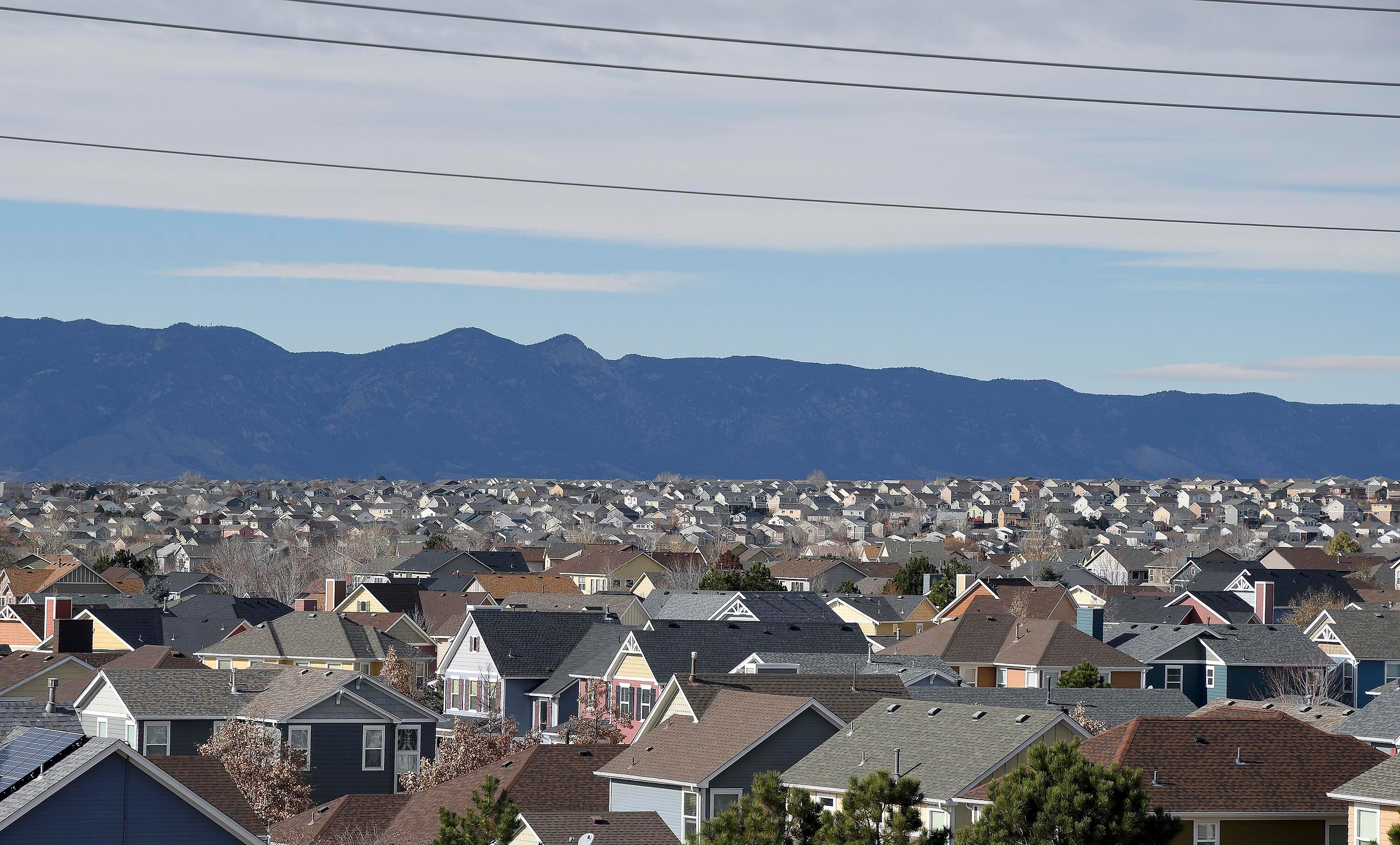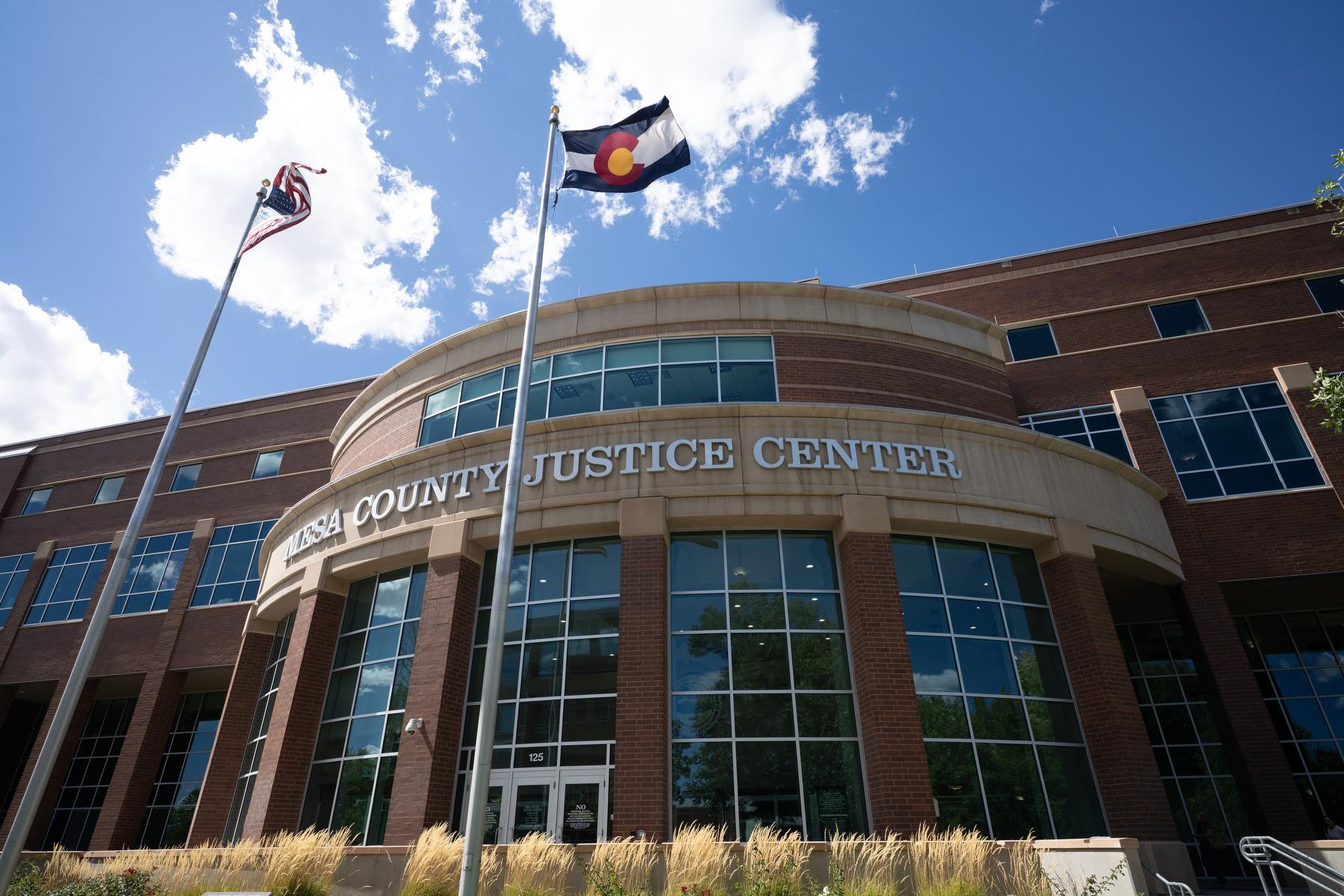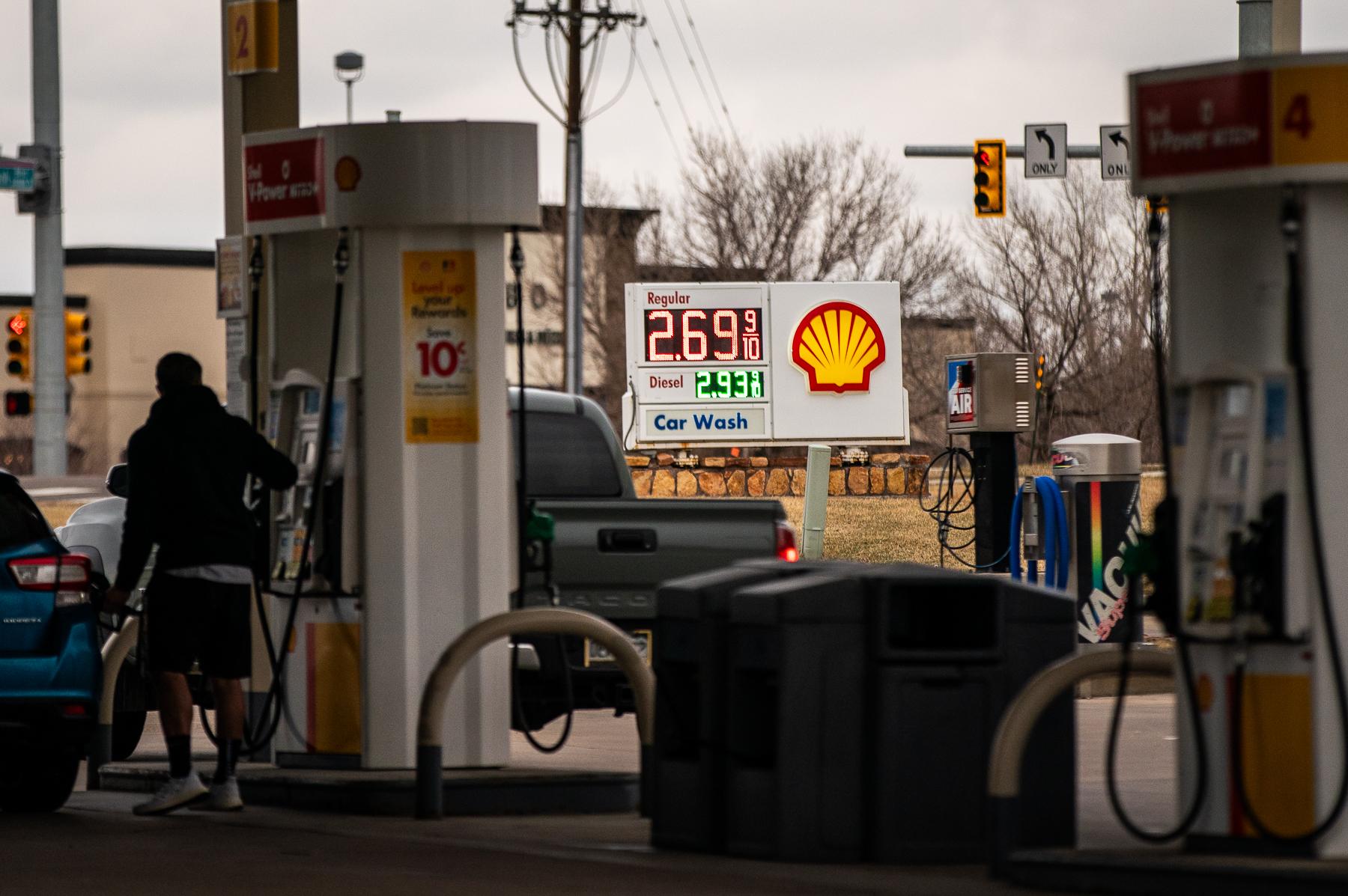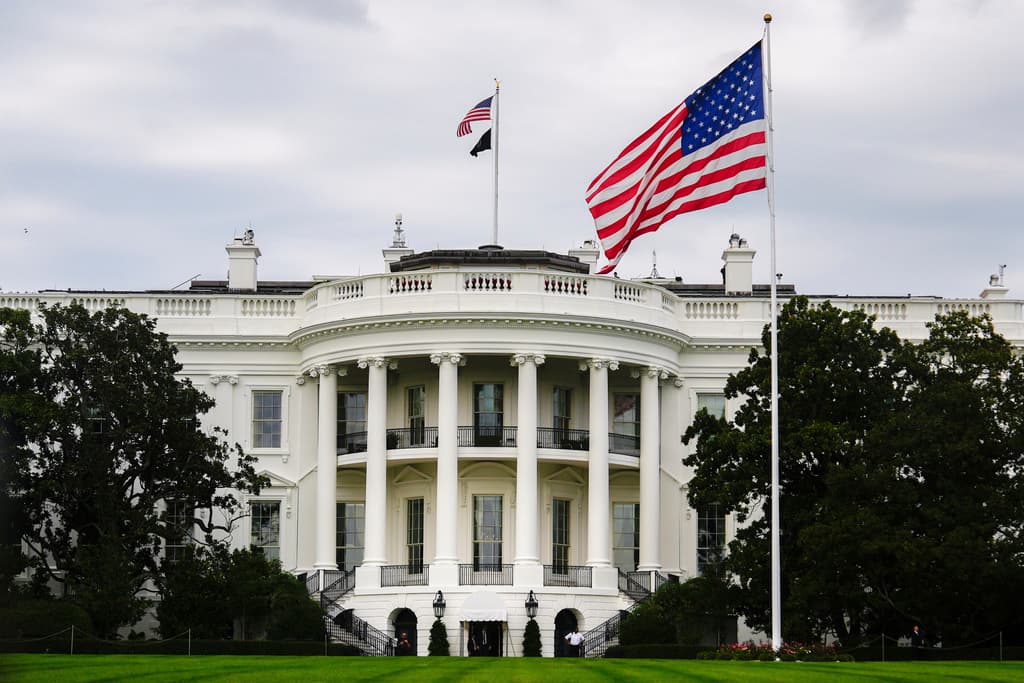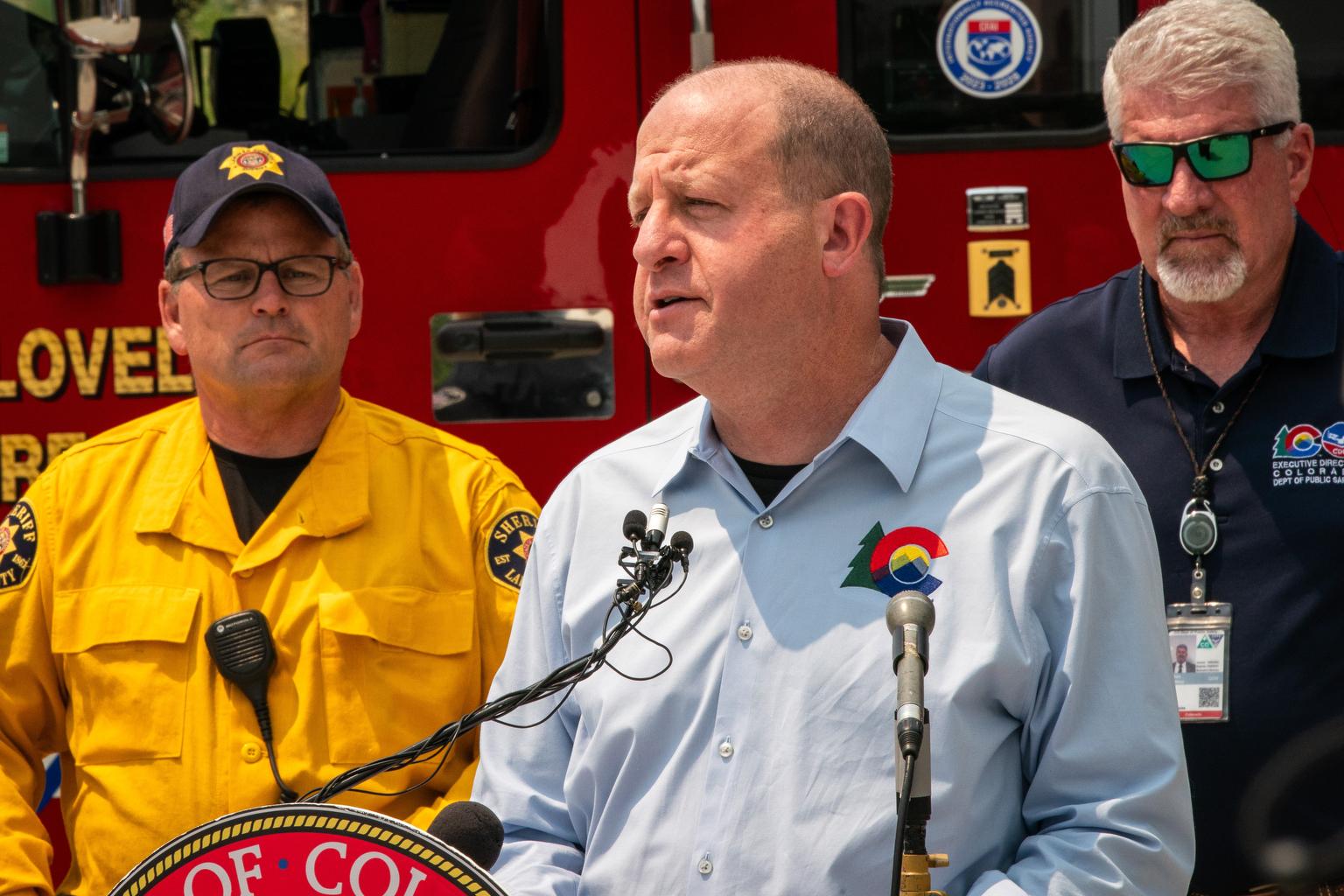
Governor Jared Polis said Colorado is in a good position to handle the spate of wildfires currently burning in the state, but expressed concern about potentially overtaxing those resources.
“It's very hot and dry right now; one message to every Coloradoan I want to make sure people hear is, be fire smart,” Polis told Colorado Matters host Ryan Warner. “Now is not the time to do campfires, to go shooting outdoors except in a range. It's not the time to use fireworks. Just put a cork in that stuff and wait until things are a lower fire risk. It would be very difficult if there were to be several additional fires at this point.”
There are three fires burning along the Front Range and another in Delta County. In the Stone Canyon fire burning near Lyons, a body was discovered in one of five buildings that have burned.
Polis also told Warner that he’s talked with Kamala Harris and offered some advice to the presumptive Democratic candidate in November’s presidential election.
“She called and we had a good discussion and I'm really excited to see that she's focusing her campaign on freedom and the future,” Polis said. “I saw that today and that's very consistent with the advice that I've given to her and others on the campaign.
“I think where President Biden got caught up is really focusing on the past and his record; as impressive as it is, every election is about the future and I think if Kamala Harris can cement herself as the candidate of the future, she will prevail in November.”
This interview has been edited for length and clarity.
Ryan Warner: The federal government is on its highest level of readiness, and the National Interagency Fire Center tells CPR news that means resources are strained across the country. How has that affected the fights here?
Gov. Jared Polis: Well, you know Ryan, and we've talked about this, but this is why several years ago we made the decision in Colorado to own our own aviation resources. We used to rely on the interstate shared agreement and those would likely not have been accessible to fight these fires. So we purchased a Firehawk helicopter, another on the way, we have three air tankers that we control, the multi-mission surveillance aircraft. So we have as well as the medium helicopters, we were able to get eight aircraft on these fires within hours because we are here ready to go. Could we use more? Of course, we could always use more, but I think it's a big shift from where we were a few years ago where we probably wouldn't have any or at the most one or two aircraft to deploy against these fires.
Warner: You ask, could we use more? And you say yes. Is that true of firefighters on the ground as well?
Polis: So by the way, on the Quarry Fire (in Jefferson County) alone, we dropped about 700,000 gallons in the last 24 hours. Obviously, it's very close to some areas. We're where we need to be on the ground. We have about 200, 250 firefighters. The challenge is always that some of these fires, like the Alexander Mountain one (near Loveland), that likely will be weeks or months, and so we're going to need to rotate out. We're going to need to refresh people. Obviously, we're also very concerned if there's additional fires. It's very hot and dry right now. One message to every Coloradoan that I want to make sure people hear is be fire smart. Now is not the time to do campfires, to go shooting outdoors except in a range. It's not the time to use fireworks. Just put a cork in that stuff and wait until things are a lower fire risk. It would be very difficult if there were to be several additional fires at this point. But yes, we're able to handle on the ground with the ones we have currently.
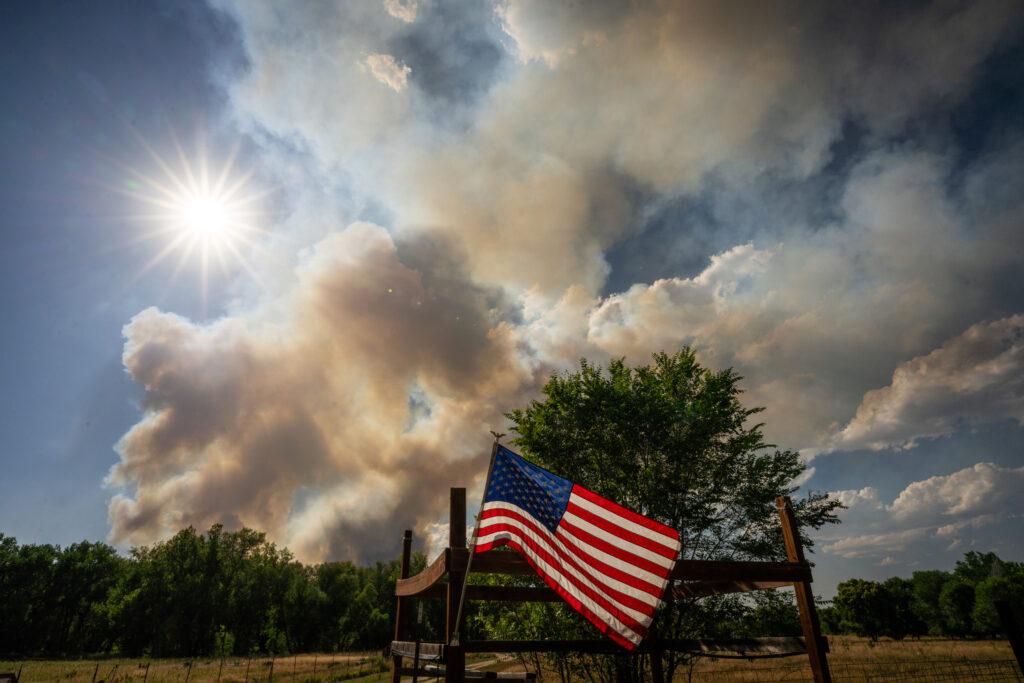
Warner: You were on the ground Wednesday near the Alexander Mountain Fire, so that's Colorado's largest. Mike Smith is the incident commander there. He tells CPR News it's a tough place to fight fire. It's one way in, one way out. Not to mention the extreme heat. And I just want to underscore something you said, that fire may be weeks or months to fight.
Polis: Yeah, that's correct. Many of these major fires last for several weeks, and I want to make sure people understand the role of what we're doing with the aviation assets, the on-the-ground firefighters: we are not extinguishing the fire. What we are doing is protecting homes and communities from fire damage, thus far largely successfully. But the fires, it can expand into the forest service land in this case. So this fire will likely expand into wild areas, US Forest Service, we want to make sure that we're able to create defense perimeters and using the slurry bombers and the on-the-ground firefighters to defend where our dense population centers and sub developments from being destroyed. So that's really the goal of that operation.
Warner: FEMA has authorized money for the Alexander Mountain and Stone Canyon fires. What does that change practically?
Polis: And likely soon for additional fires, those were the first ones in. What this means is the money that the county spends and the state spends, 75% of it is reimbursed by FEMA for this declared disaster and emergency. There are procedures where that number can be even higher, but in fighting these fires, it's important and the state has funds that are dedicated to doing that, but we really count on our federal partners in our time of need. We're thrilled that the federal government is really stepping up and helping financially with our costs.
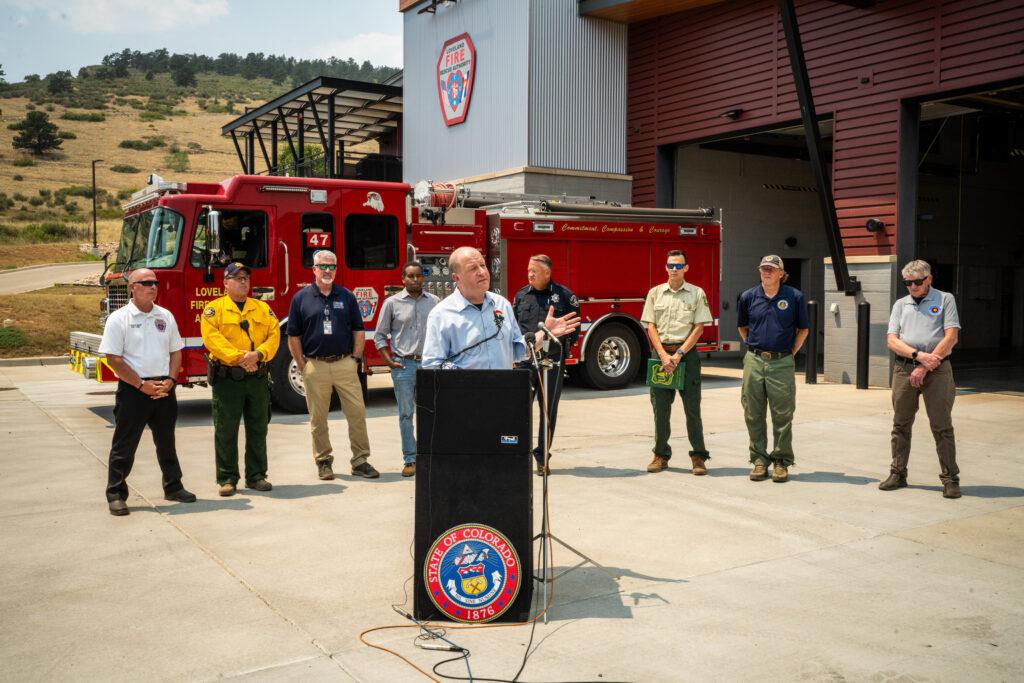
Warner: Meanwhile, air quality is abysmal, a function both of wildfires and ground-level ozone from transportation, fossil fuel production. So this is both a health and a quality-of-life issue. Governor, is climate change making Colorado less habitable?
Polis: Well, first of all, you were talking about air quality, a little different than climate change, but first on air quality, even before these fires, we had the Oregon fires, terrible air quality because of those. Now it's even worse because of our local fire. So this is important if you're asthmatic, if you have diminished lung capacity, if you're sensitive to air quality, it would be advisable to stay indoors or suspend extensive out of door activity right now for health. So I'd certainly watch that over the next few days.
Getting to climate change, the effects of that in Colorado, not just Colorado, but the American West, we are seeing longer fire seasons as one of the dangers and it's hot and dry. We had the three largest fires in the history of our state in the summer of 2020, and we need to adapt to that new reality and that's why more than ever before fire mitigation, that means before there are fires, going in and creating barriers around towns, taking down bush and trees. Home-level fire protections are more important than ever before and education and outreach about what people need to do and what communities need to do to be fire-safe with climate change.
Warner: Let's switch gears to presidential politics. Have you had any conversations with Vice President Kamala Harris since she became the presumptive nominee?
Polis: Yeah, she called and we had a good discussion. I'm really excited to see that she's focusing her campaign on freedom and the future. That's very consistent with the advice that I've given to her and others on the campaign. I think where President Biden got caught up is really focusing on the past and his record, as impressive as it is. Every election is about the future and I think if Kamala Harris can cement herself as the candidate of the future, she will prevail in November.
Warner: To any number of Americans, Harris's speech at the Democratic National Convention this month will be her debut. I'll note she hasn't had a press conference since she announced her candidacy. What do you think is the most important message for her to send at the convention?
Polis: Well, it's really about what the policies that she's supporting would mean for everyday families around the kitchen table. How can we tame inflation, reduce costs, reduce crime, secure the border? These are things that really speak to her strength. She's a former prosecutor, she's a former attorney general. She's put criminals behind bars. She knows whereof she speaks, she's been a United States Senator. I think a forward-looking vision that supports innovation while protecting our freedoms, a strong contrast to the Republican Party that wants to parent your kids and decide when you have kids, is going to serve her well, not just in the election, but frankly in office. That's the kind of president we need somebody who supports expanding our freedoms rather than shrinking them.
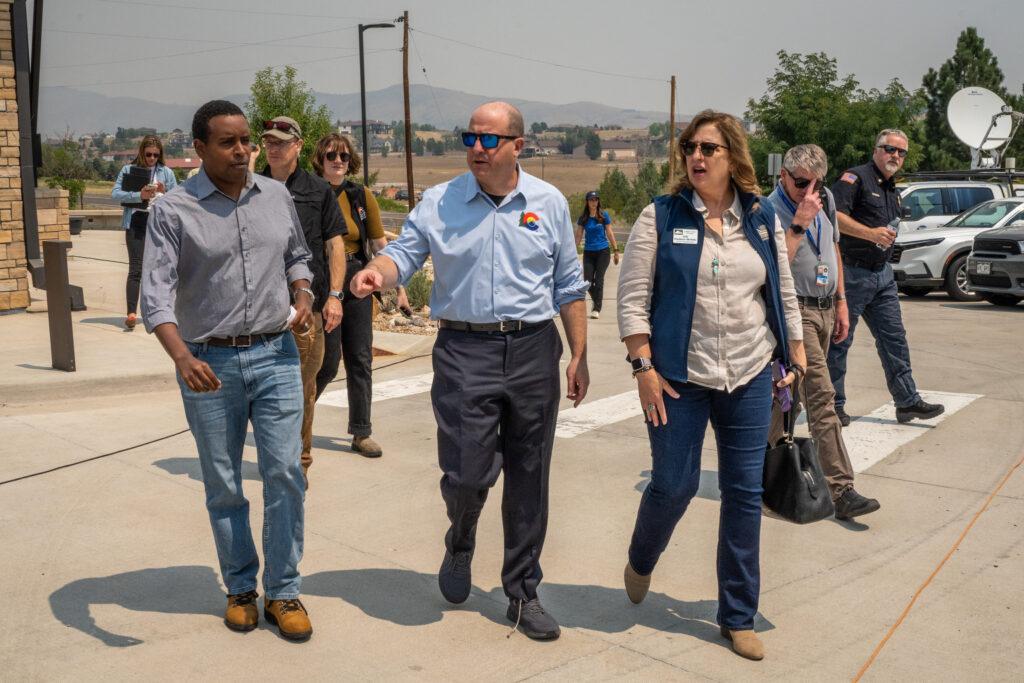
Warner: She expects to pick a running mate soon. You're not on the shortlist, but I wonder if you'd accept a cabinet position should she win?
Polis: Well, I really love the job I have Ryan, and you probably know that. I have two and a half more years as governor of Colorado, so I really love that. I can't imagine leaving that. I really enjoy this work. I can't think of a better job than serving our state.
Warner: Before we let you go, let's circle back to where we started, the fires. What will you have your eyes on today and will you be on the ground in any of these communities?
Polis: Mostly watching the wind and the wind forecast. A change of wind could imperil additional communities. We're also watching to see if other fires are started. Yesterday I was at both the Stone Canyon fire in Lyons, as well as the staging center for the Alexander Mountain fire. But we're monitoring Delta County. It has a fire that's also risen to become a state-level fire. But look, as long as things are hot and dry, sort of the real-time monitoring of conditions of weather or fires is really our top priority over the next few days.

